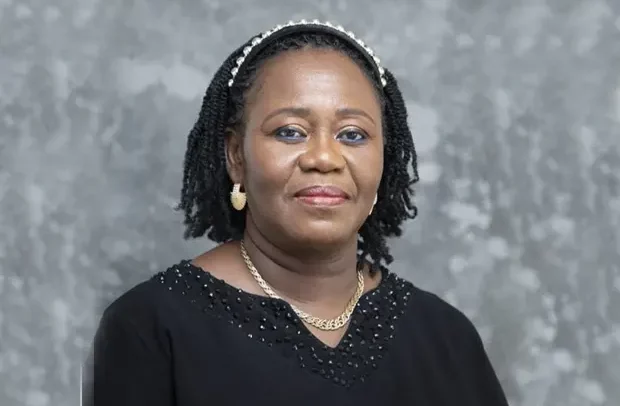Chief Justice (CJ), Gertrude Torkornoo
Chief Justice (CJ), Gertrude Torkornoo, has written to President John Mahama requesting copies of three petitions seeking to remove her as Ghana’s Chief Justice.
According to her, both constitutional provisions and common law provide that the allegations made against her must be brought to her attention, and a response received from her before the President and the Council of State can deliberate on whether a committee has to be set to determine the petitions as provided under Article 146(6) of the 1992 Constitution.
While the CJ’s request to the President is pending, private legal practitioner, Vincent Ekow Assafuah has sued the Attorney General and seeking a declaration that upon a true and proper interpretation of Articles 146(1), (2), (4), (6) and (7), 23, 57(3) and 296 of the Constitution, the President is mandated to notify the Chief Justice as well as obtain a response from her before referring the petition to the Council of State or commencing the consultation process.
He has also filed an injunction to restrain the President and the Council of State from concluding the consultation process pending the determination of the suit.
He argues that irreparable damage and grave injury would be caused the people of Ghana if the President and the Council of State proceeds upon a pursuit of the ‘tainted’ process and same is subsequently declared unconstitutional by the court.
CJ’s Request
The Chief Justice’s request, which is copied to the Council of State, its Chairman Doe Adjaho as well as former Chief Justice Sophia Akuffo, who is also a member of the Council of State, indicates that the rules of natural justice demand that the accusations made against her in the said petitions must be brought to her attention.
Justice Torkornoo, in her request, noted that on the night of March 25, 2025, a communication from the Presidency was circulated on social media announcing that the President has received three petitions for her removal as Chief Justice of the Republic of Ghana pursuant to Article 146 of the 1992 Constitution.
She however noted that, till date, she had not been shown copies of the petitions although the communique indicated that they had been forwarded to the Council of State for the consultations process mandated by Article 146(6).
“Respectfully, as you are no doubt aware, it is the most fundamental precept of the common law and our constitutional dispensation ingrained into the justice delivery process, that no consideration that affects the rights of a defendant can be made unless the defendant has been given notice of the contents of a charge, and an opportunity to respond to them,” the CJ’s request pointed out.
It also indicates that no defendant can be subjected to a trial unless the preliminary process of receiving their response has been adhered to, as provided for under Article 19, Article 23, and Article 296 of the 1992 Constitution, and all decisions in Ghana’s jurisprudence.
She reminded the President that when a petition for removal of a Superior Court Judge under Article 146 (1) is forwarded to the Chief Justice, the first requirement of due process is for the Chief Justice to bring the petition to the attention of the accused judge, and to obtain their response to the petition.
This, she said, is the right afforded every citizen in justice delivery, and it is provided for in the Article 146 procedures.
“Respectfully, in the case of the Chief Justice, please allow me to submit that it is the combination of the evidence in the petition, and the response of the Chief Justice, that provides the material for consultation between His Excellency the President and eminent members of the Council of State under Article 146(6),” the request noted.
Justice Torkornoo pointed out that these two sources serve to guide whether a prima facie case has been established, such that a Committee of Inquiry should be set up under Article 146(7) to inquire into whether the Chief Justice may be removed from office as directed in a 2005-2006 Supreme Court case.
“I am by this letter humbly and respectfully asking His Excellency the President and eminent members of the Council of State to forward the petitions against me to me, and allow me at least seven days after receipt of same, to provide my response to you, which response can then form part of the material that you conduct the consultations anticipated under 146(6), before the possible setting up of a Committee of Inquiry under Article 146 (7),” Justice Torkornoo added.
Supreme Court Writ
Mr. Assafuah’s suit is also seeking a declaration that upon a true and proper interpretation of those articles, a failure by the President to notify the Chief Justice and obtain his or her comments and responses to a petition before triggering the consultation process amounts to an unjustified interference with the independence of the Judiciary enshrined in Article 127(1) and (2) of the Constitution.
He is again seeking a declaration that a failure by the President to notify the Chief Justice and obtain comments and responses to the petition constitutes a violation of the fundamental right to a fair hearing contained in Articles 23 and 296, and renders the consultation processes for the removal of the Chief Justice initiated by the President null, void and of no effect.
BY Gibril Abdul Razak


